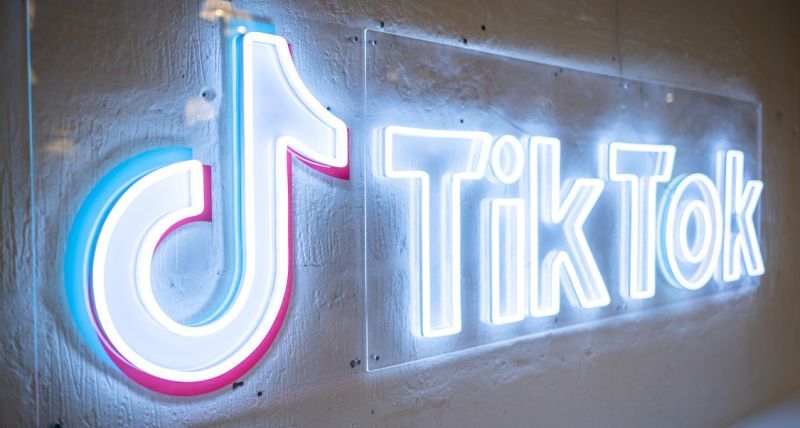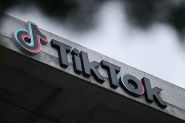- Home
- Middle East
- TikTok's US Future in Limbo after Supreme Court Ruling

This file photo taken on February 09, 2022 shows the logo of video-focused social networking service TikTok, at the TikTok UK office, in London. ©AFP
The US Supreme Court on Friday upheld a law that could force TikTok to shut down in the United States, potentially cutting off the app's 170 million users within days.
The unanimous ruling, which found the law does not violate free speech rights, dealt a major blow to TikTok and created uncertainty about what will happen when the ban takes effect on Sunday.
The court agreed with the government's national security concerns about Chinese company ByteDance's ownership of the app.
The White House-backed legislation, passed overwhelmingly by Congress last year, requires ByteDance to either sell TikTok or cease US operations by January 19.
ByteDance has firmly rejected selling its US operation, a stance also taken by Beijing, which has denounced the law as theft.
The justices acknowledged that, "for more than 170 million Americans," the social media giant "offers a distinct and expansive outlet for expression, means of engagement, and source of community."
But, the court concluded, "Congress has determined that divestiture is necessary to address its well-supported national security concerns regarding TikTok’s data collection practices and relationship with a foreign adversary."
Even if the ban now stands, the Biden White House said it won't enforce it, leaving the matter to incoming president Donald Trump.
Trump, who opposes the ban, discussed TikTok with Chinese President Xi Jinping on Friday.
"The Supreme Court decision was expected, and everyone must respect it," Trump wrote on Truth Social as he said he would need time to find an alternative to the ban.
The Department of Justice noted that enforcing the law "will be a process that plays out over time," in a potential sign that it does not intend to carry out the law for now.
Despite the court defeat, TikTok CEO Shou Chew thanked Trump for his "commitment to work with us to find a solution."
Trump "truly understands our platform," he added.
TikTok has been lobbying furiously to thwart the law's implementation with Chew set to attend Trump's inauguration on Monday.
The law requires Apple and Google to remove TikTok from their app stores, blocking new downloads. The companies could face penalties of up to $5,000 per user who can access the app.
Chew gave no indication on whether TikTok would unilaterally shut down its app in the US when the ban kicks in, as reported in US media.
TikTok's lawyer Noel Francisco had warned the platform would shut down Sunday in case of a legal defeat.
'Viable deal'
Trump's incoming national security advisor Mike Waltz told Fox News the administration would work "to keep TikTok from going dark," noting the law allows a 90-day delay if the White House can show progress toward "a viable deal."
Frank McCourt, former Los Angeles Dodgers owner, has expressed interest in leading a purchase of TikTok's US activity and said he's "ready to work with the company and President Trump to complete a deal."
The ban would hugely benefit US-owned rivals Instagram Reels and YouTube Shorts, but influencers said that TikTok's unique abilities could not be matched.
"Making videos and reaching people on TikTok is so much easier than a lot of a lot of other platforms," said Nathan Espinoza, who has more than 500,000 followers on TikTok.
Courtney Spritzer, head of digital marketing agency Socialfly, said TikTok creators were in "great uncertainty."
Among advertisers, "some are betting there will be a shutdown while others are more optimistic that it will continue to exist after Sunday."
Alex Pigman with AFP
Read more


Comments